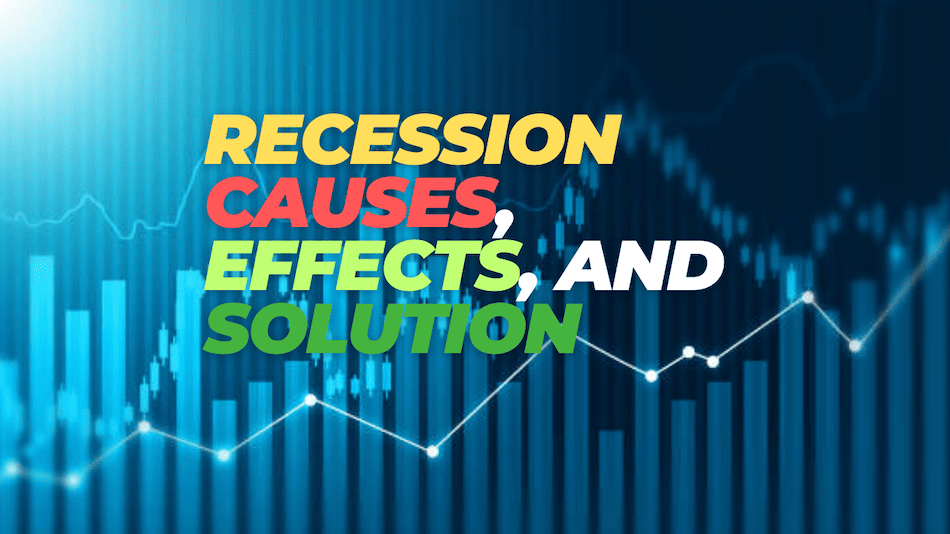Introduction
Economic recession is one of the standard economic phenomena in the world of economics and hurts countries’ economies. What is economic recession, what are its causes, what are its consequences, and what is being taken to mitigate and treat it.
Definition
Economic recession can be defined as a state of decline that affects the country’s economy for over a few months and has a clear negative impact on the gross domestic product, individual income, and the production process.
During the recession period, the company was negatively affected by the decrease in demand for goods and services, which led to a reduction in production, a decline in the labor force, and an increase in unemployment. Investment in companies often decreases, which leads to a slowdown in the country’s economic expansion. Causes of economic recession
Causes of economic recession
Decrease in demand: One of the leading causes of economic recession is decreased demand for services and goods. This decrease may be due to a loss of consumption levels and a significant increase in interest rates.
Decrease in supply: A sudden decrease in goods and services leads to an increase in production costs, which increases the prices of services and weapons and reduces the purchasing power of the consumer, which leads to a contraction in the country’s economic activity.
Hyperinflation: Hyperinflation is one of the most significant Causes of economic recession. When inflation is aggressive, central banks are created to raise interest rates as a solution. If these rates are very high, they stunt economic growth, leading to recession.
External shocks from external shocks from wars or epidemics can often paralyze the movement of 12 economies in the country. Therefore, countries need to avoid political tensions not to hurt the economic recession’s economic and social consequences.
Effects of economic recession
Economic recession has dire consequences for individuals, companies, and governments, both economically and socially. Here are some of these consequences.
Unemployment is one of the biggest problems resulting from economic recession. The decline in demand for products and services for companies is accompanied by decisions to reduce costs, which leads to layoffs and job freezes.
Decrease in confidence between consumers and companies. With the increase in prices of services and goods and the decline in demand, consumer and corporate confidence is shaken, so caution is greater when spending on necessary reservations. Companies may also postpone or cancel their investment plans in some cases. It is also possible that they will decline. As you read, the value of some assets, stocks, consumer spending, and business investment decreases, and the economy shrinks because of this decline.
Increase in government debt and the impact on global trade Governments will not stand idly by watching the adverse effects of the economic recession but rather ignore the way out of this crisis. For this reason, they devise temporary solutions such as unemployment benefits and investment incentive programs, which will push governments to borrow from external institutions. As for global trade in the country, this recession will undoubtedly negatively affect it through a decrease in exports and imports.
Recovery from the economic recession
Emerging from an economic recession typically requires extensive coordinated work between governments, central banks, companies, and individuals, and the speed of this recovery varies according to the depth and severity of the recession.
Monetary policy Central banks Here, central banks have a pivotal role in reducing the impact of economic recession. Usually, central banks reduce interest rates to reduce the cost of lending to investment.
It is important to restore confidence between consumers and companies to get out of the economic recession dilemma. This is the mission of financial institutions such as central banks and the government, which will encourage companies and individuals to spend and invest, thus overcoming the crisis.
Tackling problems in the long term To overcome the economic recession, government institutions and central banks must build a solid plan that includes effective decisions in the short and long term to ensure that the recovery is comprehensive and sustainable.
Conclusion
Although economic recession is difficult for the economy and society, it is an integral part of the economic cycle. Therefore, it is important for decision-makers to take the necessary precautions and learn from previous crises to build a more flexible and prosperous future.
